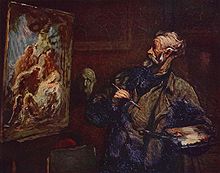The case involved Ms. Bowers who was charged with Possession of Drugs as well as DUI. At a hearing in her case the officer giving testimony had no first hand knowledge of the actual stop nor the reasons for the stop.
The Supreme Court held in Michele v. Bowers that although it's appropriate for an officer to always use information from another officer's investigation in solving crimes and other police work; an officer can not testify to the eyewitness testimony that another officer not present at a trial or hearing would have given, because it is hearsay.
Before this decision Florida Courts would allow evidence based on what was known as the Fellow Officer Rule - if one officer knows what the other officer observed thru police reports or conversation - then the evidence was admissible even for at a suppression hearing (a hearing conducted by a Clearwater Defense Lawyer in which the Defense attempts to establish that evidence should be suppressed due to officer error or legal requirements).
Here are the Briefs filed in the case from the State of Florida Attorney General and the Brief from the Defense or listen to the oral arguments actually made before the Florida Supreme Court.
Now Officers will be have to spend more time in Pinellas Court and less time painting.
 |
| Honore' Daumier, The Painter, 1870 |